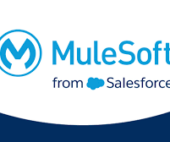The Holiday Rush and AI’s Growing Role in Retail
The holiday season is approaching quickly, with fewer days between Thanksgiving and Christmas this year than at any time since 2019. This condensed timeline makes Salesforce’s latest State of the Connected Customer report—this year titled State of the AI Connected Customer—particularly timely.
The report, based on insights from over 15,000 consumers worldwide, focuses on the growing role of artificial intelligence (AI), specifically AI agents, in transforming customer experiences. With Salesforce’s recent launch of Agentforce, AI agents have taken center stage. According to Michael Affronti, SVP and General Manager of Commerce Cloud at Salesforce, the retail sector is already exploring this technology:
“Retailers that we talk to are starting to implement AI agents. Unlike chatbots, AI agents can analyze customer data to make proactive recommendations and even take action. For consumers, AI agents create smoother checkout experiences, streamline returns, and deliver personalized shopping that feels like working with an incredible in-store associate. For retailers, AI agents drive higher margins and customer retention by delivering exceptional service. As we like to say, ‘There’s an agent for that.’”
Rebuilding Trust with AI
One of the most compelling use cases for AI agents, according to Affronti, lies in addressing declining consumer trust. Salesforce’s research highlights alarming trends:
- 72% of consumers trust companies less than they did a year ago.
- 65% believe companies mishandle customer data.
- 60% think advances in AI make trust even more critical.
AI agents present an opportunity to rebuild trust by delivering reliable and transparent experiences. While consumer expectations for personalized service remain high, Salesforce data suggests that 30% of consumers would work with AI agents if it meant faster service. However, skepticism persists—curiosity is the top emotion associated with AI, followed closely by suspicion and anxiety. Transparency is crucial, as 40% of consumers are more likely to trust AI agents when their logic is explained, and there’s an option to escalate to a human.
“Most people just want to know it’s AI, and then they’ll be comfortable,” Affronti notes. “Clarity about what the agent is doing, combined with the ability to talk to a real person, builds trust.”
Three Opportunities for Retailers
Affronti outlines three key strategies for retailers to embrace AI agents effectively this holiday season:
- Enhancing Customer Experience (CX):
AI agents can streamline in-store and online interactions, deliver personalized experiences, and quickly resolve issues—addressing major pain points for consumers. - Unified Commerce Platforms:
Delivering seamless customer experiences requires integrating e-commerce platforms with marketing operations, customer service, and other business functions. A unified data strategy ensures a consistent customer profile across all touchpoints. - Fostering Trust:
Trusted AI agents build transparent interactions and enhance reliability during peak shopping periods. Affronti emphasizes the importance of robust architecture to ensure site stability and scalability during high-traffic moments, such as Black Friday and Cyber Monday.
Experimentation and Preparing for the Future
For retailers not yet leveraging AI, Affronti advises starting small but experimenting now. For example, large brands like Saks are already piloting AI agents such as “Sophie,” which handles tasks like order management and learns new capabilities based on customer feedback. However, smaller businesses can also benefit from AI tools, such as generative AI for writing product descriptions or automating promotions, regardless of scale.
“One of the great things about AI today is how democratized it has become,” Affronti explains. “Small businesses using Salesforce’s Commerce Cloud can leverage AI for tasks like creating product descriptions or automating translations, even if their catalog is limited.”
Looking Ahead
While this holiday season may not see a widespread rollout of AI-driven retail solutions, early adopters are already showcasing what’s possible. Retailers that embrace experimentation and lay the groundwork for AI-powered experiences today will likely see significant results by the 2025 holiday season. The key takeaway: now is the time to build the foundation for the future of AI in retail.
🔔🔔 Follow us on LinkedIn 🔔🔔












